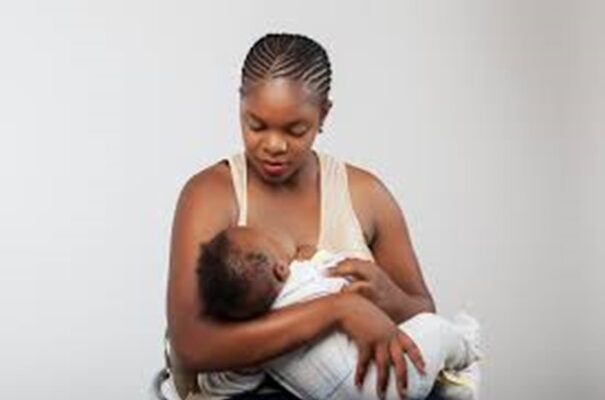- Mothers Weigh Knowledge Against Struggles and Support
In the antenatal ward of Kogi State Specialist Hospital, Lokoja, laughter and songs fill the air as expectant mothers sway to playful chants led by nurses.
The melodies soon give way to a solemn message from Matron Onyeche Egwu.
“Exclusive breastfeeding is to feed your baby with only breast milk. No water o, no agbo (local herbal concortion). Strictly breast milk alone for six months,” she said.
The room stirs with murmurs. One mother speaks aloud what many are thinking. “It’s hard oo. It’s not easy,” she stated.
That tension, between knowledge of the benefits and the lived struggles of mothers, is the heart of exclusive breastfeeding (EBF) in Nigeria.
For Blessing James, the journey has been worth every sacrifice.
“Any child that experiences exclusive breastfeeding hardly falls sick,” she says with conviction. “You’ll see your baby growing big, their body fresh. Everything will be okay.”
Yet, she admits, it takes a toll. “If you are doing baby-friendly, you too must be mama-friendly. You must eat well.”
For Ibrahim Unni, exclusive breastfeeding is a second chance.
“With my first baby, I used things like agbo. But this time, I want to do exclusive,” she said.
Her reason is clear. “The first time, my baby was not as sharp as I wanted. So this time, I decided I should do exclusive.”
Still, she faces a barrier many mothers know too well; lack of support.
“I don’t have much family support, but I want to try my best,” she laments.
Mary, another mother, sums up the emotional battle.
“Exclusive breastfeeding is very hard,” she confesses. “You will not find it easy as a mother, focusing on one thing day in, day out. It’s only God that will help us.”
Beyond exhaustion, she points to social pressure.
“Some people will come without your notice, trying to give your baby water. Even when you tell them you are doing exclusive, they will discourage you. But as a mother, you must stand your ground,” she notes.
Between Nurse Egwu’s insistence on the science, and the mothers’ raw testimonies of struggle, one truth emerges.
Exclusive breastfeeding in Kogi is not just a health practice, it is a test of resilience, support, and determination.
The Working Mother’s Challenge
For Oyiza Bello, a media professional and mother of one, exclusive breastfeeding was both a health decision and a deeply personal journey.
“When I cradled my baby for the first time, something changed inside me,” she recalled. “As a journalist, I had covered health campaigns, including breastfeeding. But it wasn’t until my own child came that the message sank in. I was determined to do it.”
Her determination was tested by reality. “Mastitis came at one point. The pain was unbearable. Returning to work was another challenge. But I planned my maternity leave carefully and extended it with my annual leave. My workplace also provided a breastfeeding room, and that helped a lot.”
Support from her husband and family made the difference. “There were nights I was exhausted. Nights I thought I could not continue. But my husband encouraged me. My family gave me space to rest. That support was everything.”
The rewards, she says, were beyond measure. “My baby grew well. She hardly allowed others to carry her because the bond was so strong. I saved money, no formula, no bottles. I felt confident. I felt connected to my child.”
Then, her tone softens. “But I know many women who don’t have it that easy. Without support at home and work, some mothers cannot do exclusive breastfeeding, no matter how much they want to.”
The Data: Progress, but Still a Long Way to Go
Nigeria continues to struggle with exclusive breastfeeding rates. According to UNICEF, only 29% of infants are exclusively breastfed for the first six months far below the 50% global target set by the World Health Organisation (WHO) for 2025.
In Kogi State, the rate stands at 29.5%, Dr. Feyisayo Oyeleke, Consultant Pediatrician at the Federal Teaching Hospital, Lokoja states that, “There is awareness, but there is still a huge gap in practice.”
Dr. Oyeleke explains the benefits with conviction. He said exclusive breastfeeding provides the perfect nutrition for infants.
“It contains antibodies that protect against pneumonia, diarrhoea, ear infections—diseases that kill many children under five.
“It supports brain development and creates emotional bonding between mother and child.”
“It also protects mothers, reducing the risk of breast and ovarian cancers,” he said.
Her concern, however, is the gap between knowledge and action. “Every day, we still see mothers supplementing with water or formula too early. Some start well but stop at three months. Some discard colostrum because they believe it is dirty. These practices endanger the child.”
The Physical Realities Mothers Face
Even mothers who understand the importance of exclusive breastfeeding encounter obstacles that test their strength.
Latching and Pain:
“Many mothers struggle with latching,” Dr. Oyeleke explains. “The baby may not hold the breast well, causing pain, cracked nipples, and inadequate feeding. Without counselling, the mother becomes discouraged.”
Biting and Soreness:
As babies grow teeth, some bite. “The pain can be severe,” says Blessing. “I cried some nights. My nipples were sore, but I continued.”
Engorgement and Mastitis:
Breast engorgement when breasts become swollen with milk can lead to mastitis, a painful infection. “We see it often,” says Dr. Oyeleke. “Mothers feel feverish and in pain. Some stop breastfeeding altogether.”
Emotional Toll
The emotional demands are equally heavy. Oyiza reflects. “You feed at night, you feed during the day, you hardly sleep. It drains you.”
Dr. Oyeleke adds: “Mothers need encouragement. Many blame themselves when they struggle. But the truth is, it takes support, not just knowledge.”
Myths and Misconceptions
Mrs. Adeyemi Funmilola, Assistant Director of Nutrition at the Kogi State Ministry of Health, lists the common myths she encounters.
“Some women believe breast size affects milk production. Others think babies need water in hot weather. Some say colostrum is dirty. Many think if the mother is not eating well, her milk is bad.”
She shakes her head. “These are myths, but they are powerful. They come from culture, from family pressure, from ignorance. And they stop women from doing what is best for their babies.”
Workplaces, she adds, also remain a major challenge. “Many mothers resume work after three months. There is no provision for breastfeeding. How will they continue? It is a serious issue.”
Efforts to Support Mothers
The Kogi State Ministry of Health has launched sensitisation campaigns and community road shows to promote exclusive breastfeeding. Antenatal classes, like the one at Specialist Hospital Lokoja, now include practical demonstrations on latching and positioning.
To tackle nutritional barriers, the state has introduced Conditional Cash Transfers for pregnant and lactating women, helping them afford nutritious food.
In collaboration with the Ministry of Agriculture, women are trained in home gardening and poultry production, and provided with seeds and tools to boost family nutrition.
Policy changes are also emerging. Mothers in the state civil service now have six months of maternity leave, while fathers have 14 days of paternity leave. Plans for daycare centres within ministries and agencies are in the works.
“This is key,” Mrs. Funmilola stresses. “When fathers are present and supportive, it becomes easier. When workplaces provide space and time, it becomes possible.”
For mothers like Oyiza, exclusive breastfeeding is more than a health choice, it is a lived experience of sacrifice and reward. For health workers like Nurse Egwu, Dr. Oyeleke, and Mrs. Funmilola, it is a public health priority that requires both education and systemic support.
At the end of her antenatal lecture, Nurse Egwu reminds the mothers once more: “Exclusive breastfeeding is not easy, but it saves lives. It protects your child and protects you.”
And as Oyiza reflects on her own journey, she leaves a simple message for other mothers:
“If you can, do it. You’ll be glad you did.”
– Tosin Toluwaloju writes form Lokoja.




